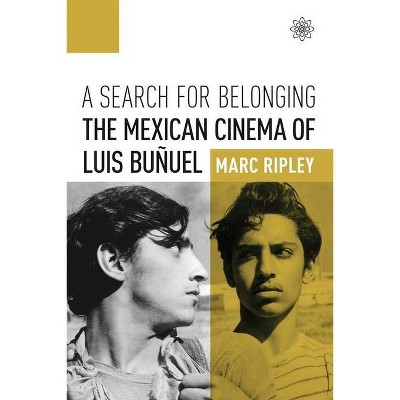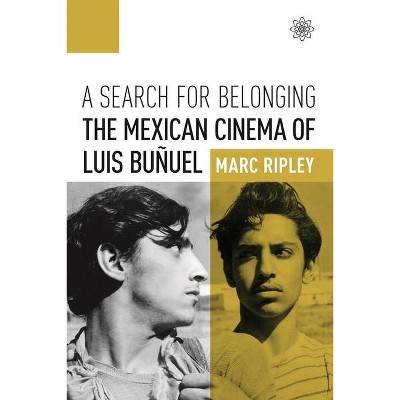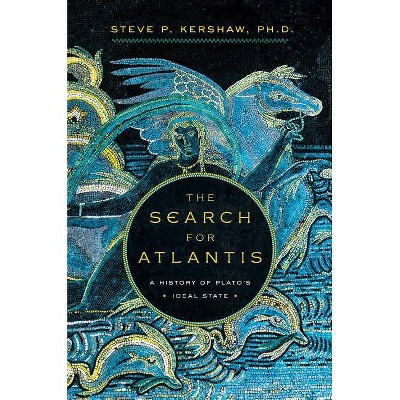A Search for Belonging - by Marc Ripley (Hardcover)

Similar Products
Products of same category from the store
AllProduct info
<p/><br></br><p><b> About the Book </b></p></br></br>This book focuses on nine of Luis Buñuel's films made in Mexico in order to show that a concerted focus on space can unlock new philosophical meaning in his rich body of work. The interdisciplinary approach of this book unites the two substrands of his work: the independent movies and the studio potboilers.<p/><br></br><p><b> Book Synopsis </b></p></br></br><p>As one of the foremost Spanish directors of all time, Luis Bunuel's filmography has been the subject of innumerable studies. Despite the fact that the twenty films he made in Mexico between 1946 and 1965 represent the most prolific stage of his career as a filmmaker, these have remained relatively neglected in writing on Bunuel and his work. This book focuses on nine of the director's films made in Mexico in order to show that a concerted focus on space, an important aspect of the films' narratives that is often intimated by scholars, yet rarely developed, can unlock new philosophical meaning in this rich body of work.</p><p>Although in recent years Bunuel's Mexican films have begun to enjoy a greater presence in criticism on the director, they are often segregated according to their perceived critical value, effectively creating two substrands of work: the independent and the studio potboiler. The interdisciplinary approach of this book unites the two, focusing on films such as <em>Los olvidados</em>, <em>Nazarin, </em> and <em>El angel exterminador </em>alongside<em> La mort en ce jardin</em>, <em>The Young One, </em> and <em>Simon del desierto</em>, among others. In doing so, it avoids the tropes most often associated with Bunuel's cinema--surrealism, Catholicism, the derision of the bourgeoisie--and the approach most often invoked in analysis of these themes: psychoanalysis. Instead, this book takes inspiration from the fields of human geography, anthropology, and philosophy, applying these to film-focused readings of Bunuel's Mexican cinema to argue that, ultimately, these films depict an overriding sense of placelessness, overtly or subliminally enacting a search for belonging that forces the viewer to question what it means to be in place.</p><p/><br></br><p><b> Review Quotes </b></p></br></br><br>A major new addition to Buñuel scholarship, this book should be required reading on all university courses. An intelligent and impeccably researched account of the recurring motif of the search for the impossible in Buñuel's work that draws the commercial and more auteurist films together in a comprehensive and elegant discussion of the aesthetic, ideological, and ethical implications of Buñuel's cinema that is inspired by the interdisciplinary focus of the spatial turn.--Jo Evans, University College London<br><p/><br></br><p><b> About the Author </b></p></br></br>Marc Ripley is a teaching fellow in Spanish and Latin American studies at the University of Leicester.
Price History
Cheapest price in the interval: 105 on November 8, 2021
Most expensive price in the interval: 105 on December 20, 2021
Price Archive shows prices from various stores, lets you see history and find the cheapest. There is no actual sale on the website. For all support, inquiry and suggestion messages communication@pricearchive.us




















